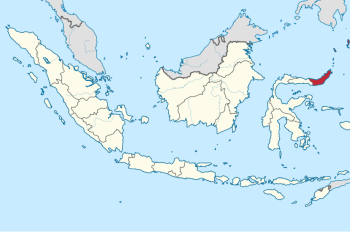
The concern that church leaders have shown for Christians suffering for their faith since the first Lausanne Congress in 1974 has grown so much that most of a day and night was devoted to persecution at the fourth Congress in South Korea on Wednesday (Sept. 25).
The connection between evangelization and persecution was clear. Consistent with the emphasis that other Christian leaders have expressed at the congress in Incheon, South Korea, speakers addressing persecution highlighted the importance of discipleship for and by those suffering for their faith.
A Christian leader based in Nigeria told the congress on world evangelization, where 5,200 Christians from around the globe gathered, that one challenge of persecution is the temptation to fall into syncretic faith marked by corruption and false idols. The Rev. Dr. Gideon Para-Mallam, executive director of the Para-Malam Peace Foundation in Jos, cited an earlier warning sounded by the Rev. Dr. Patrick Fung, global ambassador of OMF International.
“Like Dr. Patrick Fung shared this morning, persecution will never kill the church, but a compromised gospel will,” Para-Mallam told the congress. “So that’s a real challenge for Christians in Sub-Saharan Africa – lack of a united, continental biblical response to persecution, and it’s important that the global church is aware of these challenges and they can pray for us.”
Sub-Saharan Africa and the Sahel are seeing mass killings that are largely hidden – “Human beings are literally slaughtered” – as the financial infrastructure of Islamic extremist forces appear to be greatly enhanced, Para-Mallam said.
“The consequences are devastating, and it has resulted in increased persecution and terrorist attacks against Christians,” he said. “There are different nuances to persecution as experienced by Christians in Sub-Saharan Africa, but the end goal is the same: Islamism in Africa.”
Non-state actors such as Boko Haram, Al Shabaab and the Islamic State have become sub-states, with the complicity of some state officials complicating the fight against terrorism in some countries, he said. Christians are uprooted from their ancestral homelands, with millions living as internally displaced or as refugees.
“In some countries there is gender-based violence, which has become a weapon of persecution by terrorist groups in countries like Nigeria, Burkina Faso, Eritrea and Mozambique,” Para-Mallam said.
Persecution becomes a means of discipleship as Christians endure suffering, including girls kidnapped in Nigeria who have become women in captivity, such as Leah Sharibu, abducted by Boko Haram in 2018, he said.
“God is at work among Christian girls in captivity – you won’t believe this, but in Boko Haram captivity, some of these girls are involved in praying,” Para-Mallam said. “In Bible studies, even fasting, one of the girls told a Boko Haram commander, ‘I do not belong in this place. I’m praying, I’m trusting God.’ And exactly three years later, God brought her out. She’s free today despite increasing prosecution.”
Christians in Africa are reliving the Book of Acts as they learn to lay down their lives for Christ as a testimony of their resilience, he said.
“God is also winning back to himself converts from among the persecutors,” Para-Mallam said. “May God continue to do His work, and may God be glorified in spite of persecution.”
A Christian leader from Lebanon also spoke of the importance of discipleship, highlighting the need to proactively prepare to face persecution.
“This would happen by having discipleship programs and curriculum that would address issues like theology of minorities,” said the leader, whose name is withheld for security reasons. “How can you as a minority be effective in your society? How can you be a citizen responsible for your own society?”
Half-Lebanese and half-Syrian, he said the Islamic State invasion of Syria and Iraq in 2014 showed how little prepared Christians in the region were for persecution.
“Syrian Christians were really not prepared to face persecution,” he said. “I think theological institutions now, churches are preparing and more ready than before, how to educate, how to inform and how to equip sisters and brothers, how to face persecution, especially those who are coming from Muslim background and will face pressures from governments as well as communities.”
Those suffering for their faith have much to teach Christians who need to hear the voices of the persecuted through books and other media as part of their discipleship, he said.
“It’s good to have a strong biblical foundation that the church has always been persecuted, and that the church has always been a minority,” he said. “It’s really crucial that we hear the voice of the martyrs before they become martyrs. We also really need to hear the voice of the majority world and, hand-in-hand with a global church, support and advocate for the suffering Christians.”
Christian leaders in Iran also spoke of suffering as a means of growth, both personally and for the church. One speaker, whose name is withheld, said that despite persecution, the number of Christians in Iran has grown from 500 at most before the 1979 Islamic Revolution to at least 1 million converts from Islam.
“That’s why we are training more people, more leaders, printing more Bibles and resources for discipleship, because we are waiting for much more than this,” he said.
History has shown that persecution is not the “end of the story,” firstly because it’s part of any Christian story; when he accepted Christ, he knew that persecution would come, he said.
“The second reason that persecution is not the end of the story because we know the end of the story,” he said, citing the biblical promises that the gates of hell shall not overcome church and the final victory of God’s people in Revelations.
The last reason persecution is not the end of the story is “because we are all part of the story – the whole Body of Christ,” he said. “I’m talking from the bleeding part of the body. [But] we are all part of the story.”
The speakers’ emphasis on discipleship for and through persecution aligned with a paper produced by an Issue Group on the topic at the 2004 Forum for World Evangelization hosted by the Lausanne Committee for World Evangelization in Pattaya, Thailand, in 2004.
The paper noted that despite the fall of the Iron Curtain, oppression and persecution of Christians was on the increase due to globalization, nationalism, religious fundamentalism, economic disparity, post-modernism and secularism.
“But since 1989, the main context for Christian persecution has become the Islamic world,” the paper noted. “The ‘clash of civilizations’ between Islam and the West has intensified since Sept. 11, 2001 and is contributing to anti-Christian violence in Muslim contexts.”
Other causes identified were Hinduism, communism and post-communist contexts, and secularism.
“The Church’s existing theology of suffering needs to be supplemented by developing a theology of persecution, and possibly even a theology of religious freedom,” the paper stated, noting a need for capacity building within and for the persecuted Church by means of training, “both spiritual training for ministry and enduring persecution and practical/vocational training to strengthen the Church economically.”





